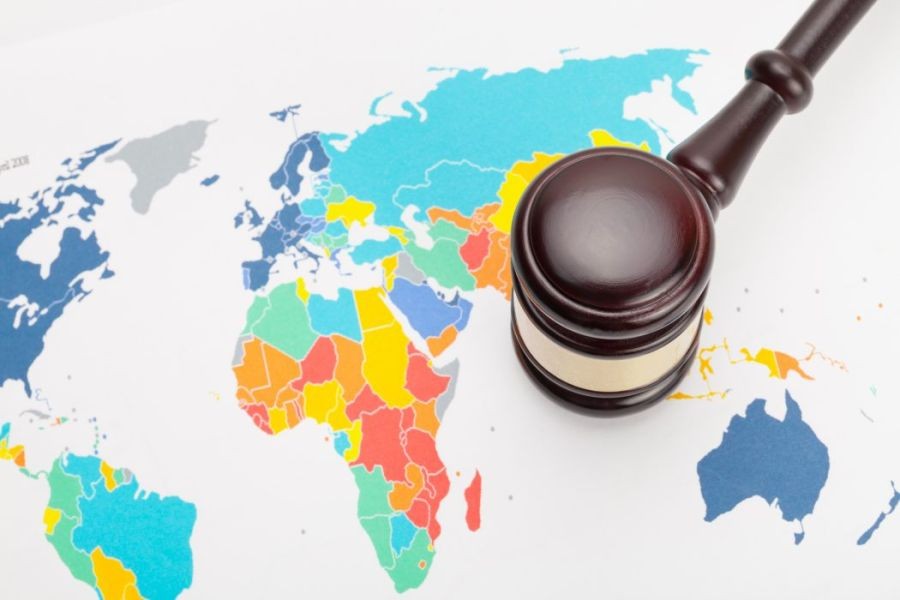In an increasingly interconnected world, the notion of neutrality in global conflicts is complex and often contested. For Australia, a nation with a rich history of alliances and global engagements, the question of neutrality is particularly pertinent. As cybersecurity consultants, understanding Australia's stance is crucial, as it influences not only geopolitical strategies but also impacts the country's cyber policies and frameworks.
Australia's Geopolitical Context
Australia's strategic position in the Asia-Pacific region necessitates a nuanced approach to global conflicts. Historically, the nation has aligned itself with Western powers, particularly the United States, reflecting shared democratic values and security interests. This alignment extends to cybersecurity, where Australia collaborates with allies to counteract threats from state and non-state actors.
According to the Australian Bureau of Statistics, Australia's economy is heavily reliant on international trade, with China being the largest trading partner. This economic interdependence complicates Australia's ability to remain neutral in conflicts involving major powers. The strategic ambiguity, therefore, serves as a pragmatic approach to safeguard national interests while maintaining global partnerships.
Cybersecurity Implications
The cybersecurity landscape is a reflection of geopolitical tensions. Australia's participation in international coalitions, such as the Five Eyes alliance, signifies a commitment to collective security measures, which inherently influences its stance on global conflicts. This collaboration has led to enhanced intelligence sharing and a robust cyber defense posture that is less about neutrality and more about strategic alliances.
However, this alignment poses challenges. For instance, Australia's stringent cybersecurity laws, enforced by the Australian Competition & Consumer Commission (ACCC) and the Australian Prudential Regulation Authority (APRA), often reflect international standards set by allied nations. This can sometimes lead to tensions with trading partners who may perceive these measures as aligned with foreign interests.
Case Study: Australia's Cybersecurity Strategy
Australia's Cyber Security Strategy 2020 offers insights into the nation's approach to global conflicts. The strategy emphasizes international cooperation and the strengthening of alliances to secure cyberspace. This is evident from Australia's active participation in initiatives like the Paris Call for Trust and Security in Cyberspace, which promotes peaceful use of digital technologies.
In practice, Australia's strategy has led to significant improvements in national cybersecurity resilience. For instance, the Australian Cyber Security Centre (ACSC) reported a 30% increase in cyber threat intelligence sharing with allied nations, leading to a 20% reduction in successful cyberattacks on critical infrastructure.
Pros and Cons of Australia's Approach
Australia's strategic alignment in global conflicts, particularly in cybersecurity, presents both advantages and challenges.
Pros:
- Enhanced Security: Collaborations with international allies bolster national security and improve threat detection capabilities.
- Economic Benefits: Aligning with major powers ensures continued trade relations, crucial for Australia's economy.
- Technological Advancements: Access to cutting-edge technologies and cybersecurity practices through international partnerships.
Cons:
- Dependency Risks: Over-reliance on allies may limit Australia's autonomy in policy-making.
- Trade Tensions: Alignments may strain relations with non-aligned trading partners, potentially impacting economic growth.
- Privacy Concerns: Stringent cybersecurity measures may raise concerns about data privacy and civil liberties.
Common Myths about Australia's Neutrality
Several misconceptions exist about Australia's stance in global conflicts, particularly in cybersecurity.
Myth: Australia is completely neutral in global conflicts. Reality: While Australia strives for strategic ambiguity, its alliances, particularly with the US, influence its stance, making complete neutrality challenging.
Myth: Australia's cybersecurity measures are solely domestic. Reality: Australia's cybersecurity strategy is heavily influenced by international collaborations, reflecting global security dynamics.
Future Trends and Predictions
Looking ahead, Australia's approach to global conflicts, especially in the realm of cybersecurity, is likely to evolve. By 2026, the integration of artificial intelligence in cybersecurity is expected to enhance threat detection capabilities, as highlighted by a study from the Australian Strategic Policy Institute. Additionally, Australia's participation in international cyber norms development will likely increase, reflecting its commitment to a rules-based order in cyberspace.
Conclusion
In conclusion, while Australia may not be entirely neutral in global conflicts due to its strategic alliances, it continues to navigate a complex geopolitical landscape with caution and pragmatism. For cybersecurity consultants, understanding this dynamic is vital for developing strategies that align with both national interests and global security trends. As the landscape evolves, staying informed about Australia's strategic decisions will be crucial for navigating the future of cybersecurity.
People Also Ask
- How does Australia's alignment affect its cybersecurity policies? Australia's alignment with international allies enhances its cybersecurity policies, enabling better threat intelligence sharing and improved defense mechanisms.
- What are the biggest misconceptions about Australia's neutrality? A common myth is that Australia is completely neutral. However, its strategic alliances influence its global conflict stance.
- What upcoming changes could affect Australia's cybersecurity landscape? By 2026, advancements in AI and international cyber norms may significantly shape Australia's cybersecurity strategies.
Related Search Queries
- Australia's role in global conflicts
- Cybersecurity strategies in Australia
- Australia's international alliances
- Impact of global conflicts on Australia
- Australia's trade relations and neutrality

































Zopi Nights
7 months ago